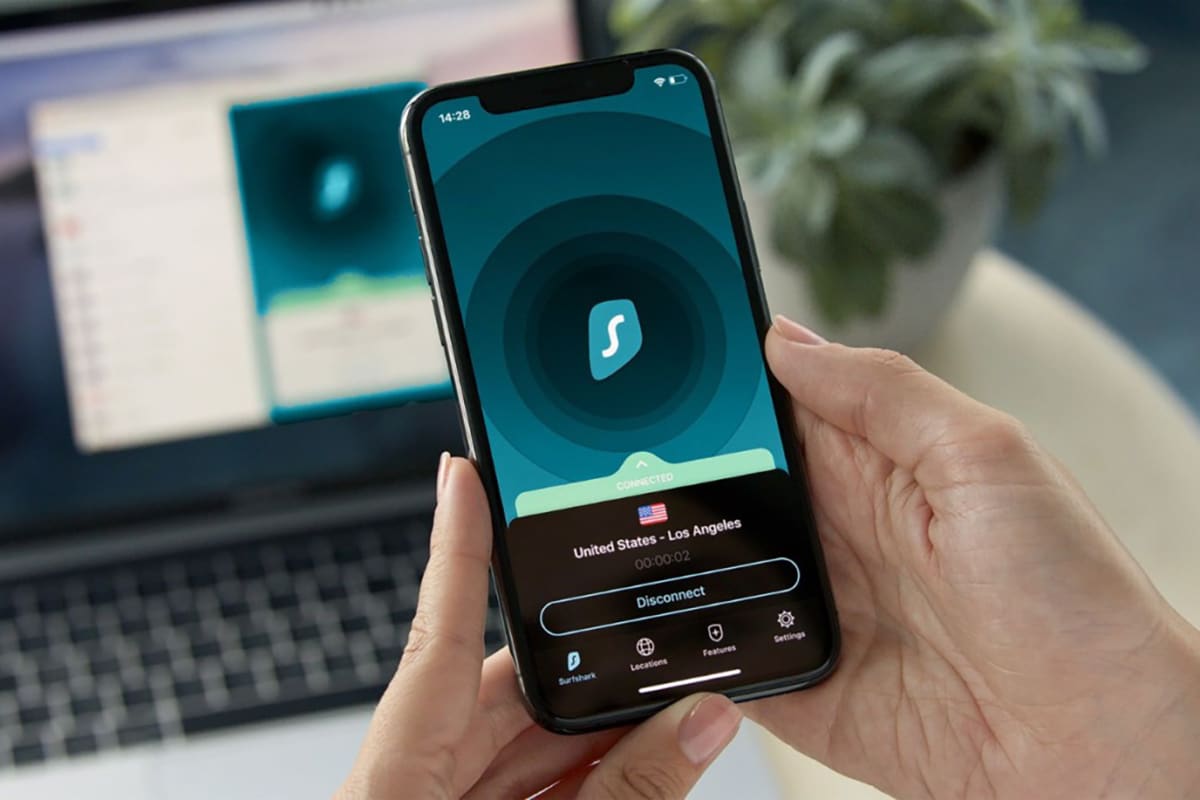Want to access blocked websites and enjoy the open internet with complete privacy? VPN blocking can be annoying, but this guide will teach you multiple methods to bypass these restrictions.
I‘m Adrien, a long-time tech and streaming enthusiast. After dealing with constant VPN blocks myself, I decided to research techniques to bypass these limitations.
In this comprehensive guide, you‘ll learn:
- Why VPNs get blocked in the first place
- The different technical methods used for VPN blocking
- 6 proven ways to bypass VPN blocks
- Advanced tactics to mask your VPN use
- Troubleshooting tips to unblock any website
Let‘s get started!
Why Do Websites and Networks Block VPNs?
According to VPN experts, there are 5 main reasons sites block virtual private networks:
- Government Censorship – Authoritarian states like China, Russia, Turkey routinely block VPNs as they allow citizens to bypass state censorship and access free information.
- Streaming Geo-restrictions – Netflix, Hulu, BBC iPlayer block VPNs to enforce licensing and copyright rules based on regions.
- Financial Compliance – Banks and trading platforms block VPN connections to comply with KYC and anti-fraud regulations.
- Corporate Network Policies – Schools, workplaces often prohibit VPN use on their networks to enforce acceptable usage policies and improve security.
- Combating Illegal Activities – Websites block VPNs used for unlawful activities like unauthorized streaming, hacking, gambling, etc.
China‘s infamous Great Firewall of China blocks pretty much all major foreign websites, news outlets, and social media networks including Google, Facebook, WhatsApp, Instagram, Reddit, GitHub, Twitch and major Western news networks.
They are trying to create their own domestic replacements which are heavily monitored and censored by the state.
According to stats from the University of Toronto‘s Citizen Lab project which monitors global internet censorship:
- Over 10,000 domestic and foreign websites blocked in mainland China
- 99% of Tibetan/Uyghur language websites blocked
- More than 2,800 keyword triggers that block website access when searched
- 208 out of the top 1,000 global websites blocked in China
So clearly, VPNs pose a threat to online censorship and monitoring which is why restrictive regimes actively try to detect and block them.
Meanwhile, streaming sites geo-restrict content based on region to comply with complex licensing deals in each country. For example according to data from Flixwatch, only 36% of Netflix US movies/shows are available on Netflix UK.
To enforce these licensing limits, streaming sites maintain blacklists of known VPN IP addresses and block traffic originating from them. According to research from Comparitech, major streaming sites block access from 92 of the top 95 VPN providers.
When it comes to financial platforms, VPNs can be used for fraud by masking user identities and locations, allowing criminals to bypass KYC regulations. That‘s why banks and regulated trading exchanges prohibit VPN access to comply with anti-money laundering laws.
Schools and employers ban VPN usage on their networks to enforce acceptable usage policies. VPNs allow students and employees to bypass firewall filters and security rules which poses a risk to the organization.
Finally, websites block VPNs used for illegally streaming copyrighted content, unauthorized access or other cybercrime activities. For example, Sony PlayStation network temporarily bans users detected using VPNs as it violates their terms of service.
The common thread is that VPNs allow bypassing restrictions, which powerful entities try to prevent using increasingly sophisticated blocking tactics.
How Websites Actually Block VPN Connections
Network administrators and firewalls leverage a number of technical methods to detect and block VPN traffic:
1. IP Blocking
VPNs work by masking your real IP address and assigning you an IP of their server in a certain location. Sites maintain blacklists of IPs belonging to known VPN services and instantly block any connection coming from them.
The downside is that this may block innocent residential users who share the same IP address as a VPN server. According to data from proxy service Luminati, 1 in 3200 residential IPs are also used by VPN services.
2. Port Blocking
Certain ports like 443, 1194, 1723 are commonly used by VPN protocols. Network firewalls routinely block these ports which disrupts any VPN connection.
| Protocol | Common Ports Blocked |
|---|---|
| OpenVPN | 443, 1194 |
| L2TP/IPSec | 1701, 500, 4500 |
| SSTP | 443 |
| IKEv2 | 500, 4500 |
3. Protocol Blocking
Advances in deep packet inspection allow real-time traffic analysis to fingerprint protocols like OpenVPN and IKEv2. Once detected, all traffic belonging to that VPN protocol can be instantly blocked.
4. Geoblocking
Websites can compare your actual GPS location against the VPN server‘s geolocation you‘ve connected to. Any obvious mismatch can trigger geo-blocks and captchas to prevent access.
5. Browser Fingerprinting
The configuration of your browser, device, fonts etc. create a fingerprint which can be tracked. Sites that require login can build a fingerprint profile to detect if you are accessing via VPN.
6. Active Probing
This technique checks if ports commonly used by VPN protocols like 1723 or 5000 are open when you connect. Any active response confirms you are on a VPN and can cause immediate blocking.
7. Third-party VPN Blocking Tools
There are commercial services like IP2Proxy, GeoSurf and GeoEdge which websites can integrate to instantly identify VPN traffic and block suspicious connections.
According to vpnMentor‘s 2022 report, 45% of VPN blocking happens through blacklisting known VPN IP addresses, making it still the most common blocking technique. Meanwhile 12% of blocks happen through active port probing and another 8% by manually analyzing traffic origination.
The good news is that there are proven ways to bypass all these tactics, which we‘ll cover next.
6 Reliable Ways to Bypass VPN Blocks
The simplest way is to use a reputable VPN service that is optimized to bypass blocks using various proprietary techniques. However, here are 6 different approaches that give you the highest chance of evading VPN detection:
1. Use a Top-Tier VPN
Premium VPN providers like ExpressVPN, NordVPN, Surfshark and CyberGhost have several features that allow bypassing blocks:
- Obfuscated Servers – disguise VPN traffic as regular HTTPS traffic by adding an outer TLS encryption layer. This fools firewalls using DPI.
- Stealth Protocols – like NordVPN‘s NordLynx and ExpressVPN‘s Lightway are proprietary protocols specifically designed to avoid deep packet inspection.
- SOCKS5 Proxies – adding a proxy layer encrypts traffic making it very difficult to detect the VPN connection inside.
- Custom VPN Ports – having the option to modify ports allows you to avoid known VPN ports prone to blocking.
- Residential IPs – VPNs that offer residential IP addresses instead of datacenter IPs can avoid blacklists of flagged server IPs.
According to tests by vpnMentor, the top 5 VPNs for successfully bypassing regional blocks are:
- ExpressVPN
- NordVPN
- Surfshark
- CyberGhost
- Private Internet Access
The best approach is to combine multiple features for maximum stealth. For example, you can connect via obfuscated servers on custom ports using the VPN‘s proprietary stealth protocol.
2. Switch Between Multiple VPNs
If one VPN isn‘t working, simply switch to another provider. Each VPN uses different infrastructure, IP addresses, protocols and bypass techniques.
Subscribing to multiple VPN services massively increases your odds of finding one that can evade blocks on a specific website or network.
For example, use Surfshark to unblock Netflix, then jump to CyberGhost if BBC iPlayer blocks Surfshark. Also mix up desktop and mobile apps to maximize variety.
3. Use Residential Proxies
Routing your connection through residential proxies adds a layer of encryption that masks VPN use.
Residential proxies utilize real home IPs instead of datacenter IPs. This makes your traffic appear as regular home broadband activity, avoiding IP blocks.
Popular residential proxy services include Luminati, Smartproxy, Oxylabs, StormProxies and Microleaves. Most offer browser extensions that make using residential proxies easy.
4. Set Up Your Own DIY VPN
Renting a VPS server lets you build your own custom VPN. The benefit is your IP won‘t belong to any known VPN provider that could trigger blocks.
You can fine-tune the server‘s firewall rules and VPN settings specifically to evade detection. Although a DIY VPN takes more effort to set up and manage versus commercial services.
Tools like Streisand, Algo and Outline simplify deploying OpenVPN and WireGuard on a Linux VPS from providers like Vultur, Contabo or Oracle Cloud.
5. Leverage SSL/TLS Tunnels
SSL (Secure Socket Layer) and TLS (Transport Layer Security) are encryption protocols that create secure tunnels for internet traffic.
Using SSL/TLS tunneling tools like Stunnel, AnyConnect SSL VPN, ngrok or localtunnels allows you to bypass firewall blocks by encrypting and encapsulating your VPN connection inside the tunnel.
This prevents deep packet inspection from analyzing your traffic. SSL tunneling also defeats IP and port blocking since the tunnel operates on standard ports like TCP 443 which can never be blocked on websites.
6. Try "Domain Fronting"
This technique disguises your traffic to appear as if it‘s accessing a large CDN (Content Delivery Network) domain like Cloudflare rather than the actual endpoint.
Once the traffic reaches the CDN server, it gets routed to the true destination. But firewalls are unable to analyze the traffic as it matches the domain it‘s impersonating.
Domain fronting used to be employed by privacy services like Tor and Signal but is now prohibited on major cloud networks. However niche services still exist along with open-source tools like GreenTunnel.
Advanced Tactics for Maximum VPN Stealth
For tricky blocks, you can try these more advanced tactics to mask your VPN use:
- Use a VPN Router – Configuring your VPN at the router-level prevents any IP or DNS leaks that could reveal you‘re using a VPN.
- MAC Address Spoofing – Websites can track devices via MAC address. Use a spoofer like Technitium or SMAC to randomize it regularly.
- GPS Spoofing – Make your device‘s GPS location match your VPN server‘s city. Apps like Fake GPS Location and Location Spoofer allow GPS spoofing.
- TOR over VPN – Chaining your VPN connection through the TOR network adds an encrypted proxy layer that fully masks VPN signatures from DPI analysis.
- Tunnel VPN Through SSH – Forwarding your VPN traffic through an SSH tunnel lets you bypass firewalls by encrypting VPN packets at a low level.
Bypass Methods for Specific Blocks
Sometimes general bypass techniques won‘t work on every site. Here are some proven solutions for specific blocks:
Gaming Blocks
Online games like Fortnite, Minecraft, and Call of Duty block VPNs to stop players getting around region locks and abusing matchmaking. Some workarounds include:
- Use a Geo-spoofing VPN like Geoslide or Soda VPN that changes your virtual location.
- Leverage a residential proxy service which provides real home IPs.
- Try connecting from mobile data instead of home broadband where the VPN was likely flagged.
Government Censorship
State-level censorship like China‘s Great Firewall requires specialized "bulletproof" VPNs with:
- Obfsproxy or Shadowsocks protocol to obfuscate traffic
- Multihop connections across multiple countries
- Stealth VPN and SSH tunneling
- SSL or WebRTC encryption
- Residential and shared IPs to avoid blocks
According to tests by Top10VPN, the top 3 VPNs for bypassing China‘s firewall are:
- ExpressVPN
- NordVPN
- Speedify
Netflix VPN Blocks
Netflix aggressively blocks almost all VPN IPs due to streaming rights issues. A few working solutions are:
- Clear cookies/cache before connecting to get a fresh IP.
- Use residential proxies as an add-on encryption layer.
- Leverage a VPN connection "split-tunnel" to encrypt only Netflix traffic.
- Connect from a different network like workplace or mobile data.
According to uFlix‘s updated tests, the only VPNs proven to currently unblock Netflix (as of January 2022) are:
- ExpressVPN
- NordVPN
- Surfshark
- VyprVPN
However, their success rates are not 100% guaranteed.
School/Work VPN Blocks
To bypass VPN blocks when using workplace or school internet, you can:
- Use mobile data instead to connect to the VPN service.
- Try connecting to the VPN before connecting to their network.
- Tunnel the VPN encryption inside an SSH tunnel which is harder to detect.
- Access VPN on unblocked ports like TCP 443 or use obfuscated servers.
University WiFi Blocks
Many college campuses now block all non-approved VPN access on their networks. Some tips include:
- Tunnel your VPN over SSH on port 443 to encrypt traffic fully.
- Use a VPN router that connects before you join the campus WiFi.
- Leverage SSL-based VPN protocols like OpenConnect or AnyConnect.
- Connect via an unblocked residential proxy before launching VPN.
Got Blocked? Try These Fixes
If you still can‘t bypass a block using the above tips, here are some troubleshooting steps:
- Clear site cookies and try reconnecting to refresh your IP.
- Switch over to another VPN server location that may not be blocked.
- Toggle between protocols like OpenVPN, IKEv2, WireGuard or Stealth options.
- Use obfuscated or stealth VPN servers if available.
- Change the VPN port away from common ports that could be blocked.
- Try your VPN connection on a different network like mobile data or a second device.
- Whitelist your VPN‘s IP range if an overactive local firewall is likely interfering.
- Restart your modem and router which often refreshes your public IP address.
Do You Need Multiple VPN Subscriptions?
The best way to guarantee VPN access is having multiple VPN services at your disposal. This provides diversity in protocols, IP ranges, servers and bypass techniques.
However, subscribing individually to providers like NordVPN, ExpressVPN and CyberGhost can get very expensive.
A clever alternative is to use a VPN manager service like StackSocial VPN Unlimited. It provides access to 10 leading VPNs through a single subscription starting at just $3 per month.
Being able to switch instantly between services like TunnelBear, Encrypt.me, and VyprVPN maximizes your chances of evading VPN blocks.
Final Thoughts
VPNs are vital for online privacy. However, excessive VPN blocking does happen on some networks and sites.
The good news is reliably bypassing these restrictions is totally possible using the methods in this guide. A premium VPN provider combined with additional tunnels and proxies can unblock just about anything.
Internet freedom is important. With the right tools, restrictive blocks don‘t have to limit your digital life.
I hope this guide was helpful for you in learning multiple techniques to regain access to blocked websites. Let me know in the comments if you have any other tips I can add!




